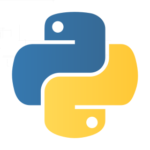 rqlite is an open-source distributed relational database, with SQLite as its storage engine. v3.4.0 is out, which includes a minor change to the HTTP responses.
rqlite is an open-source distributed relational database, with SQLite as its storage engine. v3.4.0 is out, which includes a minor change to the HTTP responses.
You can download the release from GitHub.
 rqlite is an open-source distributed relational database, with SQLite as its storage engine. v3.4.0 is out, which includes a minor change to the HTTP responses.
rqlite is an open-source distributed relational database, with SQLite as its storage engine. v3.4.0 is out, which includes a minor change to the HTTP responses.
You can download the release from GitHub.
 rqlite is an open-source distributed relational database, with SQLite as its storage engine. v3.3.0 has been released and includes new functionality to control the Raft consensus subsystem, along with improvements to the CLI.
rqlite is an open-source distributed relational database, with SQLite as its storage engine. v3.3.0 has been released and includes new functionality to control the Raft consensus subsystem, along with improvements to the CLI.
You can download the release from GitHub.
 rqlite is an open-source distributed relational database, with SQLite as its storage engine. v3.2.1 has been released and includes new functionality for cluster management, along with new documentation on running clusters. v3.2.0 also includes some bug fixes.
rqlite is an open-source distributed relational database, with SQLite as its storage engine. v3.2.1 has been released and includes new functionality for cluster management, along with new documentation on running clusters. v3.2.0 also includes some bug fixes.
You can download the release from GitHub.
 rqlite is an open-source distributed relational database, which uses SQLite as its storage engine. rqlite is written in Go and uses Raft to achieve consensus across a set of SQLite databases. It gracefully handles leader election, and can tolerate machine failure.
rqlite is an open-source distributed relational database, which uses SQLite as its storage engine. rqlite is written in Go and uses Raft to achieve consensus across a set of SQLite databases. It gracefully handles leader election, and can tolerate machine failure.
With the v3 release series, rqlite can now replicate SQLite databases on a global scale, with very little effort. Let’s see it in action using the AWS EC2 cloud.
 rqlite is an open-source distributed relational database, with SQLite as its storage engine. v3.0.1 has been released and it is a significant upgrade relative to the 2.0 series. The 3.0 series allows more sophisticated clusters to be built and simplifies rqlite client coding requirements.
rqlite is an open-source distributed relational database, with SQLite as its storage engine. v3.0.1 has been released and it is a significant upgrade relative to the 2.0 series. The 3.0 series allows more sophisticated clusters to be built and simplifies rqlite client coding requirements.
Continue reading rqlite v3.0.1 released with leader redirection
 Thanks to Zac Medico, there are new Python clients available for rqlite — a pure Python client, and a SQLAlchemy mapper.
Thanks to Zac Medico, there are new Python clients available for rqlite — a pure Python client, and a SQLAlchemy mapper.
Check them out on GitHub.
 To help with the growth of rqlite, it’s been moved to a new repository, under a dedicated organization. Github made this transfer very easy.
To help with the growth of rqlite, it’s been moved to a new repository, under a dedicated organization. Github made this transfer very easy.
I decided on a new logo too.
 rqlite is a replicated relational database built on SQLite, with distributed consensus provided by the Raft consensus protocol. It gracefully handles leader election, and can tolerate machine failure.
rqlite is a replicated relational database built on SQLite, with distributed consensus provided by the Raft consensus protocol. It gracefully handles leader election, and can tolerate machine failure.
Written in Go, v2.2.1 is out now.
Continue reading rqlite v2.2.1 released with HTTPS, Basic Auth, and user permissions
 I made a presentation on rqlite tonight at the San Francisco Go Meetup. It was an enjoyable evening, and I had a chance to discuss why I built rqlite, how it works, and where it might go in the future.
I made a presentation on rqlite tonight at the San Francisco Go Meetup. It was an enjoyable evening, and I had a chance to discuss why I built rqlite, how it works, and where it might go in the future.
 Programming a database is fascinating work. I’ve been deeply involved with developing open source databases for the past two years and programming a database is possibly the most instructive project one can ever complete as a software developer.
Programming a database is fascinating work. I’ve been deeply involved with developing open source databases for the past two years and programming a database is possibly the most instructive project one can ever complete as a software developer.
What’s really striking however, is how much my attitude towards databases has changed over the past 6 years. From a state of disinterest, I’ve come to think of these systems as a pinnacle of software engineering.